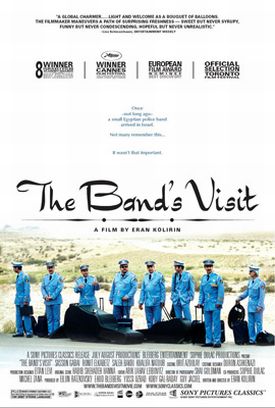eXistenZ
The latest from David Cronenberg, eXistenZ, has a certain unexpected
wit to it. Set in an unspecified future, it tells the story (or should we say
seems to tell the story?) of the
world’s greatest computer-game
developer, called Allegra Geller (Jennifer Jason Leigh). Her newest and greatest
game, eXistenZ, involves putting the players into a sort of communal trance and
wiring them up to a cable deliberately made to resemble an umbilical cord. In
this position, they can be made to share the same dream (or nightmare), in which
all of them are assigned roles to play. As she is demonstrating the prototype of
eXistenZ before an invited audience a would-be assassin shoots her with an
organic gun, made from animal bones and firing human teeth, designed to evade
detection by futuristic security devices that can recognize both metal and
plastic.
She is only wounded, however, and manages to make her escape with the help of
a lowly “PR
nerd” called Ted Pikul (Jude Law) from
her corporate sponsor, the Antenna Research Company. Together the two embark
upon a wild adventure on the run both from a rival game company, called Cortical
Systematics, who want to steal the software, and from something called the
“realist
underground”— which consists of
guerrilla troops violently opposed to all computer gaming. The weirdness of
their adventures bears a suspicious resemblance to that of computer games
themselves, and it is hard to tell if such futuristic touches as the mutant
lizards and amphibians that are harvested both for food and for parts for
organically composed game
“pods”
are meant to be real or imaginary.
Allegra treats her beloved pod as something more than a pet and very little
less than a friend, which I gather is meant to seem a consequence of the fact
that this is a world in which everybody, at least among the privileged classes,
apparently lives entirely inside his or her head. Allegra and Pikul think they
will be safe hiding out at a ski lodge because
“nobody actually physically skis
anymore.” All games players have a surgically implanted
“bioport”
at the base of their spines into which the games can be plugged by one of the
umbilical cords, and the insertion of the plug, like the feminine shape of the
pod, is amusingly fraught with sexual imagery. Since Pikul has not had a bioport
installed, he must get one—for
unexplained reasons an “illegal,
unregistered”
one—from a hilarious gas station
attendant called Gas (Willem Dafoe) so that he can play with Allegra. When he
has got it, she sprays the new port with WD-60 (it is the future, after all)
before sticking her finger in it:
“Sometimes new ports are a bit
tight,” she explains.
“I
wouldn’t want to hurt
you.”
It is, as I say, a witty idea, as are some of the wilder and more unexpected
events that the two encounter, though the fantastical animals strike me as
rather a bore and the use that is made of them pointlessly disgusting. But in
the end the whole thing boils down to a meditation on the borderland between
dream and reality, about which there is simply not very much more to be said
than that it is sometimes difficult to tell them apart. It is of course even
more difficult in a film in which, because of the futuristic setting, the
director can arbitrarily identify any detail as real or fantasy. But the fact
that he has made his own work so easy seems to me to vitiate the attempt at
profundity when he has Pikul complaining that the game “makes no sense” because
you don’t know if there’s any object to it and you’re always on the point of
being killed. “It’s not going to be easy to market,” he says.
“But it’s a game everybody is already playing,” replies Allegra.
Heavy! Yes, life itself is a lot like that. But there’s one big difference
between it and the game—or, indeed, the movie—which is that in life
the outcomes of such uncertainties matter. I’m not sure that Cronenberg
quite appreciates this fact.
Discover more from James Bowman
Subscribe to get the latest posts to your email.




![Inglorious Bastards [QT, note SP]](https://jamesbowman.net/wp-content/uploads/2009/08/ingloriousbastards.jpg)


